Top 10 Richest Countries in the World by GDP Per Capita in 2023
October 9, 2024
When defining what makes a country wealthy, it’s fairly standard to look at the heartbeat of its economy, the Gross Domestic Product (GDP).
GDP is the tally of all goods and services produced over a set period, a pulse check on a nation’s economic health.
But as time passes and our understanding deepens, many economists are turning their attention towards GDP per capita – a more telling measure which doesn’t just measure the sheer size of the overall economy.
GDP per capita divides the country’s GDP by the total population and gives a better sense of individual economic well-being and standard of living.
This approach reveals the world’s wealthiest nations with greater accuracy, as it considers economic output on a personal level, not just the sheer size of the overall economy.

Drawing from a number of sources, the Nomad Capitalist team has put together a list for 2023 of the ten richest countries in the world by GDP per capita, topped by the wealthiest country in the world which boasts an impressive US$129,810.32 GDP per capita.
Interestingly, the ten richest countries in the world include some smaller nations, where residents enjoy an exceptionally high standard of living and plenty of business and investment opportunities.
These highly developed nations have made a huge impact on the global economy.
For investors and travellers, these countries represent some of the most desirable locations in the world, so why not let us help you investigate the possibility of relocating there?
At Nomad Capitalist, we’re all about freedom and preparing yourself for whatever challenge life throws at you and that includes knowing how to acquire a second passport in the country of your choice.
We’ve helped our clients get residence permits in 38+ countries, so if you’re looking for ways to safeguard your wealth, talk to our team today about creating a holistic offshore Action Plan.
10. Denmark
US$68,299.82 GDP per capita
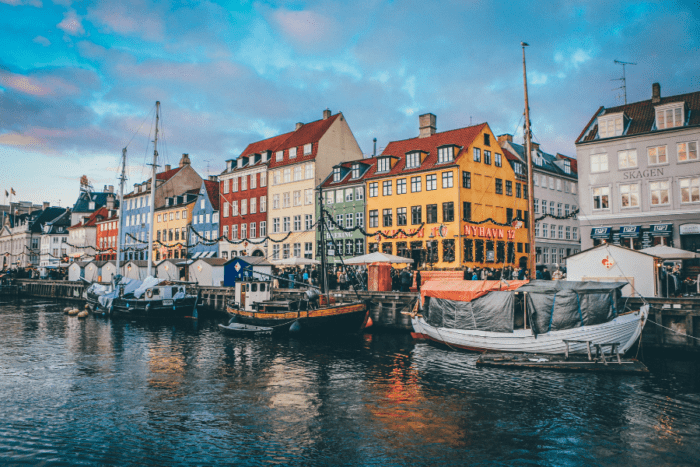
While smaller than many of its European Union neighbours, with a population of around six million, Denmark punches well above its weight in economic terms.
With a well-developed infrastructure and high standard of living, Denmark’s economic success is built on its exports of agricultural products and energy – it’s among the top oil producers in Western Europe.
With a top income tax rate of 52.07%, citizens in Denmark are happy to pay more for extensive social support.
The globe’s third happiest country, according to the World Happiness Report, Denmark is known for its low crime rate, lack of corruption and ‘hygge’ – a feeling of contentment arising from time spent simply, with people you care about.
9. Macao
US$69,079.72 GDP per capita
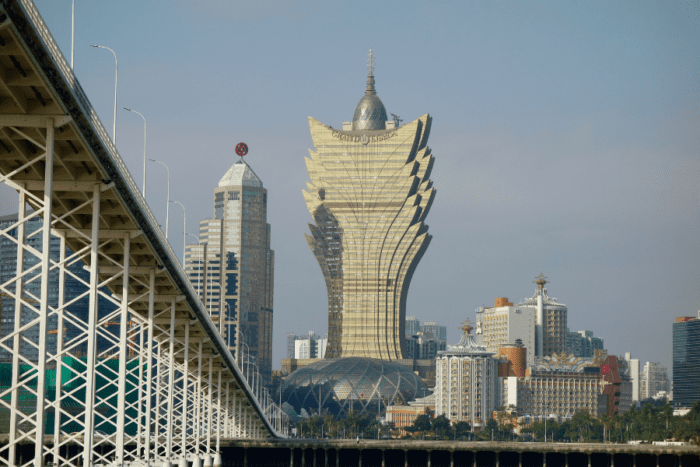
Macao is an administrative region of China that has become a hub for gambling-related tourism.
Known as the ‘Las Vegas of Asia’, this small state, with a population of just 700,000, has a world-renowned gaming industry that attracts a large number of tourists from mainland China and Hong Kong.
In the first quarter of 2024, the total number of visitors to Macao reached 8.9 million, a year-on-year increase of 79.4%.
Efforts to address the region’s dependence on gambling have seen it grow as a location for high-tech industry, finance and wealth management.
8. Qatar
US$78,696.21 GDP per capita
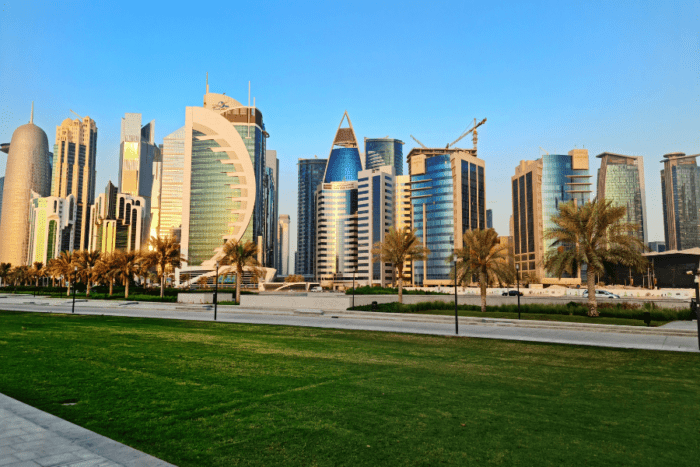
The oil-wealthy nation of Qatar, located in the Middle East, is known for being an incredibly multicultural country with over 180 nationalities.
It’s previously been listed as the fifth-richest country in the world by Global Finance magazine.
In 2022, the nation hosted the FIFA World Cup and, in the process, became the first Arab nation to do so. For that privilege, Qatar shelled out around US$200 billion on infrastructure ahead of the event.
7. Iceland
US$79,998.44 GDP per capita

For an economy that, during the financial crisis of 2008, had a banking debt ten times larger than its GDP, Iceland’s economy has recovered remarkably well.
This, in large part, was down to a strategy of realising that while most people thought the banks were too big to fail, Iceland thought they were too big to save.
Channeling its Viking ancestry, it allowed its largest banks go bankrupt and threw dozens of bankers in jail.
And yet, despite its unusual approach, the Icelandic economy recovered and went on to enjoy a decade of unbroken economic growth, giving citizens a high standard of living.
Economic growth there has been underpinned by traditional exports of fish, the growth of tourism and the low cost of renewable energy there, as well as an expansion of cryptocurrency mining.
6. United States
US$81,632.25 GDP per capita

Thanks to its robust economy, which also happens to be the largest in the world, the United States has consistently maintained its status as a global superpower.
The United States’ natural resources, including coal, oil and timber, have contributed significantly to the country’s wealth, as has its cultural reach, entrepreneurial spirit and high consumer spending.
Despite ranking high in GDP, the US falls behind other nations, such as Luxembourg, in terms of GDP per capita.
That’s been attributed to rising inflation and higher food and energy costs, which have eroded consumer purchasing power and slowed production output.
Perhaps that’s why, in recent years, more US citizens have decided to leave the US. If you’re a US citizen who’s interested in getting a second passport, Nomad Capitalist is ready to help you create a holistic offshore strategy.
5. Singapore
US$84,734.28 GDP per capita
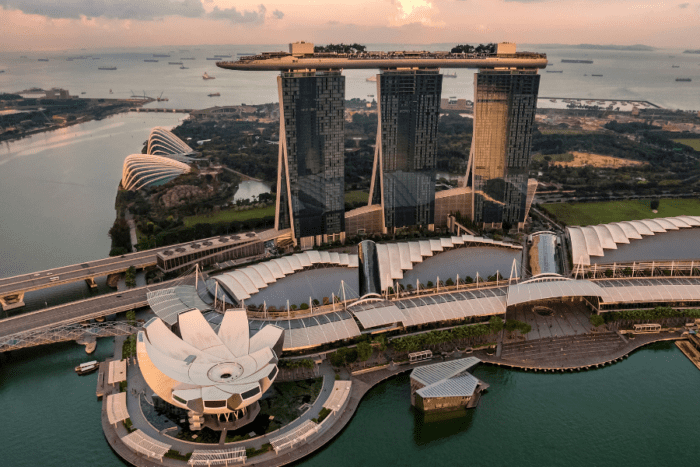
Coming fifth on our list, the tiny island-state of Singapore continues our theme of very small, very rich countries, with significant numbers of high-net-worth individuals opting to make it their home.
In fact, the latest World’s Wealthiest Cities Report estimated that in 2023 alone, 3,400 high-net-worth individuals moved to Singapore.
While some may not like the idea of living in a small, overpriced apartment in densely populated Singapore, the country is attractive for a wide variety of reasons – it’s a great location for offshore gold storage and offers an attractive tax system.
Singapore’s economy is extremely developed and considered one of the world’s most open and least corrupt markets.
4. Norway
US$87,739.41 GDP per capita
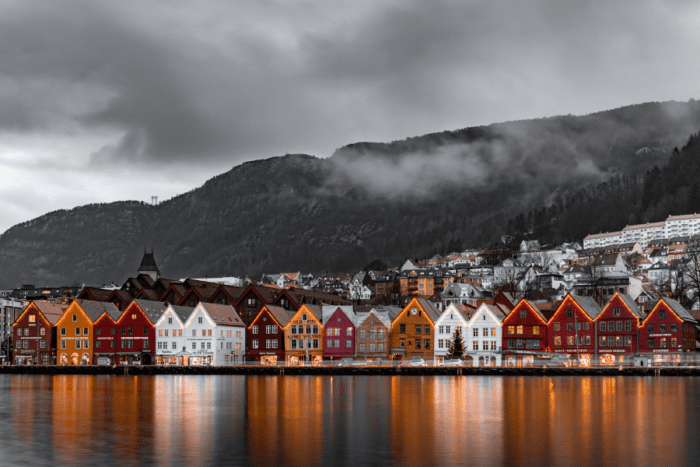
As might be expected of Western Europe’s biggest oil producer, Norway’s economy is powered by its offshore oil reserves.
However, the country’s prosperity is also based on the responsible management of its natural resources, low levels of debt and an open, business-friendly economy.
This northern European nation has one of the smallest income inequality gaps globally. The country currently ranks 7th in the global happiness index, with a short working week and a genuine focus on work-life balance.
3. Switzerland
US$100,413.07 GDP per capita

The Swiss owe their substantial wealth to varied industries like banking and tourism, as well as the export of pharmaceuticals, gems, precious metals, watches and medical equipment.
Factors such as its developed industrialised economy, financial sector stability and a low tax burden have helped Switzerland reach high levels of wealth.
If you’re a high-net-worth individual looking to settle in a European country while minimising your taxes, then Switzerland might be the perfect spot as a pro-crypto, low-tax jurisdiction that prioritises intellectual property rights.
This peaceful country provides a fantastic quality of life, and the taxation system offers a unique lump-sum tax incentive.
2. Ireland
US$104,272.08 GDP per capita
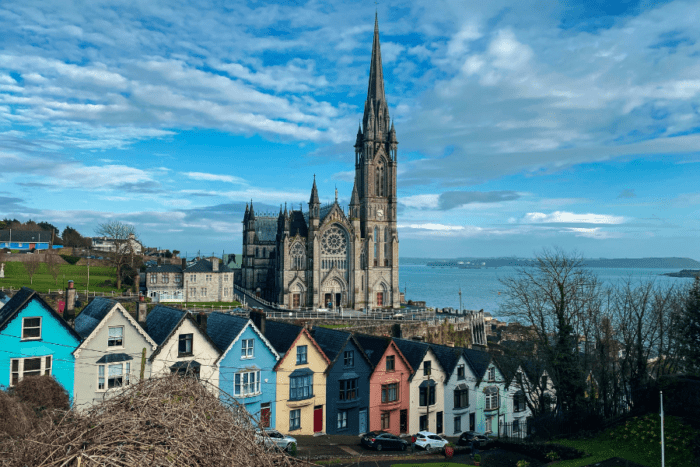
Following tough reforms such as public sector wage cuts and banking industry restructuring, Ireland has achieved an exponential increase in GDP per capita and employment rates.
With a population of only five million – there are seven million on the entire island – this relatively small EU country was hit hard by the financial crisis of 2008 but recovered fast.
Thanks to its favourable corporate tax rate, international high-tech and pharma companies, along with a multitude of other foreign businesses, have flocked to its shores.
Many big-name US companies, including Apple, Google, Microsoft, Meta and Pfizer, moved to Ireland to take advantage of its access to the EU, business-friendly enivronment and a low corporate tax rate of 12.5%.
As of 2024, Ireland has agreed to implement a new corporate tax rate of 15% for larger corporations, dependent on profit margins.
ut the country remains one of the most appealing tax environments in the world. That, coupled with a young, educated, English-speaking population and EU membership has made it an irresistible location for many international companies and travellers.
1. Luxembourg
US$129,810.32 GDP per capita
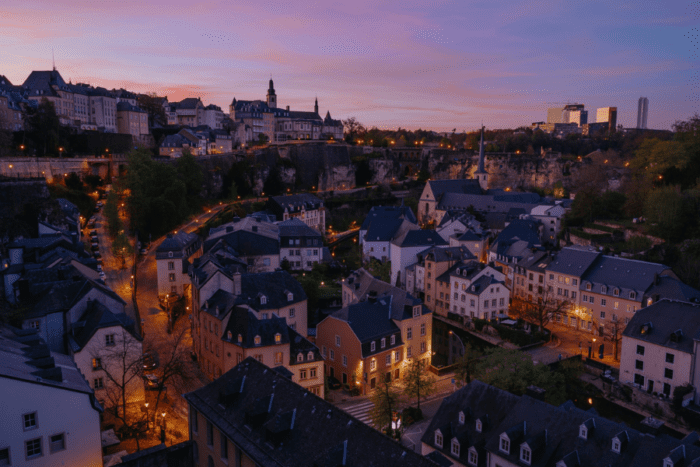
Topping off our list in first place, Luxembourg’s impressive wealth comes from a diverse range of industries, such as banking, steel, telecommunications and tourism.
There are over 9,000 holding companies established in a country of just half a million people.
In addition to being home to the European Investment Bank, Luxembourg also houses a number of ultra-rich residents.
For many years, businesses have flocked to Luxembourg to pay low taxes. While the European Union has inhibited some of the more attractive aspects of such a plan, Luxembourg continues to prosper as a small, competitive state with low tax structures.

Top 10 Richest Countries in the World: FAQs
The world’s wealthiest countries hold most of the world’s wealth, including the United States,
China, Japan, Germany, United Kingdom, France, India and Canada. Luxembourg is the
wealthiest country by GDP per capita, at US$143,743.
However, when ranking wealthy countries based on their per-capita average wealth or their
median per-capita wealth, other countries come out on top. For example, Switzerland is the
richest country in the world with an average per-capita wealth of around US$685,000.
According to Statista, Seychelles currently has the largest Gross Domestic Product (GDP) per
capita in Africa at US21.87 thousand, followed by Mauritius at around US$13 thousand.
The most affluent countries in Southeast Asia include:
● Singapore – US$88,450
● Brunei – US$35,110
● Malaysia – US$13,310
● Thailand – US$7,810
● Indonesia – US$5,270
Luxembourg is the richest country in the world by GDP per capita, at US$143,743.
Unsurprisingly, citizens of this wealthy country enjoy the highest standard of living in the EU.
Go Where You’re Treated Best
Whether setting up a business or working as an employee, relocating to one of the world’s richest countries can be an excellent and rewarding move to make.
For expats and high-net-worth individuals, living in a country that knows how to succeed in an increasingly unstable world can be beneficial.
However, wherever you decide to go, you will need to plan carefully. When moving to a new country, there are just as many pitfalls to avoid as benefits to gain.
That’s where Nomad Capitalist comes in. We help seven- and eight-figure entrepreneurs and investors create a bespoke strategy using our uniquely successful methods.
We’ll help you keep more of your own money, create new wealth faster and protect yourself from whatever happens in just three steps. Become a client today.


Is Grenada Safe for Visitors, Residents and Families?
Evaluating a nation for tourism, relocation or investment begins with a single, non-negotiable factor – safety. Security, from both a personal and financial point of view, is the foundation upon which all other considerations rest. And while it’s easy to assume that stability is a given in the developed world, recent challenges in countries like […]
Read more

Is Antigua Safe for Tourists, Families and New Residents?
Security is a cornerstone of any serious investment migration strategy. For high-net-worth individuals (HWNIs) and globally mobile families, it ranks alongside tax efficiency, political stability, and quality of life as a key driver in deciding where to live, invest or acquire a second passport. Too often, safety is assumed to align with economic development. Countries […]
Read more

Is St Kitts and Nevis Safe? Tips for Tourists and Residents
Safety is a non-negotiable factor for anyone considering whether a country is right for travel, relocation or investment. Overlooking such a vital consideration carries serious consequences, and the stark truth is that assumptions based on a country’s global image often fall short of reality. Cases in point include the following countries: The takeaway is clear: […]
Read more




